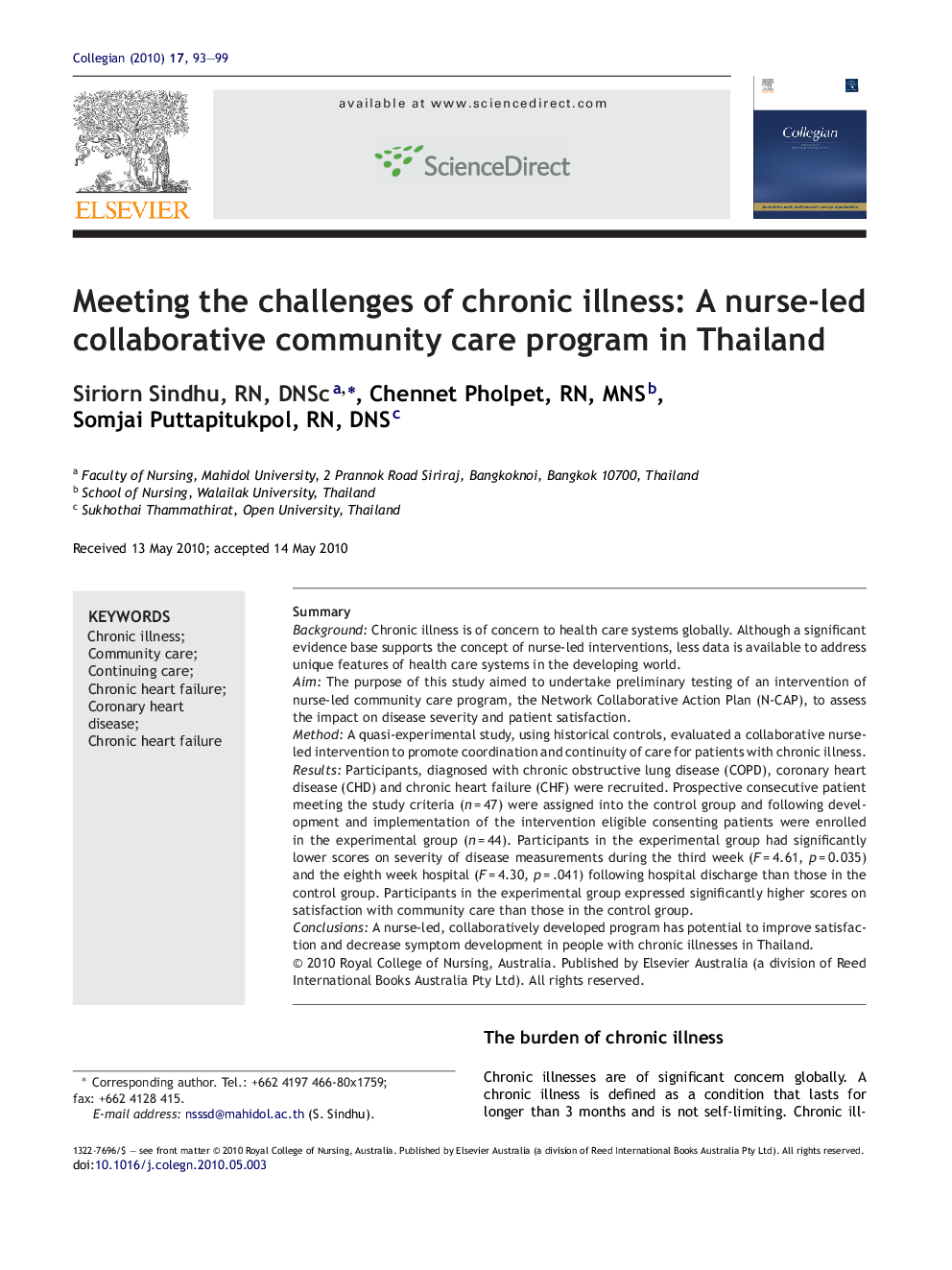| Article ID | Journal | Published Year | Pages | File Type |
|---|---|---|---|---|
| 2646935 | Collegian | 2010 | 7 Pages |
SummaryBackgroundChronic illness is of concern to health care systems globally. Although a significant evidence base supports the concept of nurse-led interventions, less data is available to address unique features of health care systems in the developing world.AimThe purpose of this study aimed to undertake preliminary testing of an intervention of nurse-led community care program, the Network Collaborative Action Plan (N-CAP), to assess the impact on disease severity and patient satisfaction.MethodA quasi-experimental study, using historical controls, evaluated a collaborative nurse-led intervention to promote coordination and continuity of care for patients with chronic illness.ResultsParticipants, diagnosed with chronic obstructive lung disease (COPD), coronary heart disease (CHD) and chronic heart failure (CHF) were recruited. Prospective consecutive patient meeting the study criteria (n = 47) were assigned into the control group and following development and implementation of the intervention eligible consenting patients were enrolled in the experimental group (n = 44). Participants in the experimental group had significantly lower scores on severity of disease measurements during the third week (F = 4.61, p = 0.035) and the eighth week hospital (F = 4.30, p = .041) following hospital discharge than those in the control group. Participants in the experimental group expressed significantly higher scores on satisfaction with community care than those in the control group.ConclusionsA nurse-led, collaboratively developed program has potential to improve satisfaction and decrease symptom development in people with chronic illnesses in Thailand.
